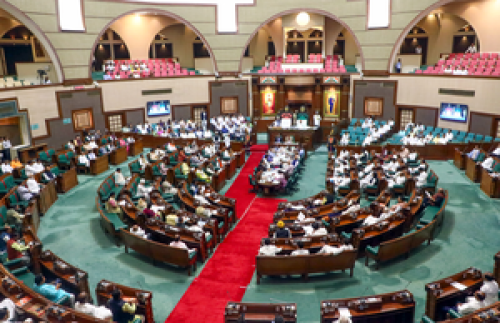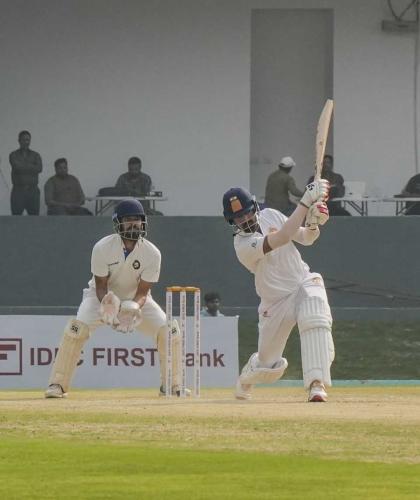By J.V. Lakshmana Rao Post-independent India has turned a big leaf from being a food shortage country to food surplus nation and the credit goes to the green revolution as a result to a great extent of the extensive research that has been carried out by the Central and State agricultural research institutions and the experimental farms attached to them under the auspices of the Indian Council of Agricultural Research (ICAR) and various Central and State agricultural universities. In this effort, three regional agricultural research institutions and their farms in the state of Andhra Pradesh have been doing yeoman research work. The three research institutions are located each one at Anakapalle, Nandyal, which are more than a century old, and the Machilipatnam research institution, which is more than half a century old. These three regional research institutions are attached to the Acharya N.G. Ramga Agricultural University (ANGRAU)formerly known as Andhra Pradesh Agricultural University. They have been conducting research in the region-centric commercial crops like sugarcane, cotton and rice. These three research institutions have produced several new varieties of seeds and strains of farm products and won national and international recognition, reputation and awards. But now their very existence in the present locations is endangered by the ill-conceived move of the Government of Andhra Pradesh. There is a proposal to “appropriate” the vast well-developed rich experimental farm lands to locate the proposed medical colleges there. The locations of these research institutions with attached experimental farm lands, and seed and produce processing and storage structures, are stated to be the “lure” of some rich real estate developers and landlords, a few of them are politicians themselves and their supporters. Under the garb of locating the proposed medical colleges with attached hospitals and hostels in these research farm lands, some influential real estate developers, landlords among whom are some influential politicians, are trying to enrich their landed and housing properties and jack up their property prices and make huge profits. A number of farmers and agripreneurs, who are being trained in the latest and advanced land-water management and crop production technologies, skilled and unskilled farm workers, research scientists and their heads attached to these three institutes, suspect that these self-interested landlords, real estate developers and politically influential people are behind the Government of Andhra Pradesh in prompting it for the issuing of a GO about locating medical colleges and hospitals in these farm research lands. They say that the Government has not informed the heads of the farm research institutions and university administration and the farmers, but issued the GO unilaterally about the alienation of large parcels of experimental research fields (without mentioning their locations) in these three cities. However, the land survey numbers mentioned in the GO for alienation and location of the medical colleges fall in thejurisdiction of the farm research stations attached to the ANGRAU. According to the GO, in Nandyal the government is acquiring about 50 acres for the proposed medical college. But, according to the survey numbers mentioned in the GO, these 50 acres are part of the 120 acres, which belong to the Nandyal Regional Agricultural Research Station. The alienation of 50 acres of specially prepared land meant for research would cut into the research work of the institution, which specializes in developing several strains of paddy, cotton and cereals suitable for various types of soils in the country. The soil in and around Nandyal is considered to be especially suitable for the research in growing cereals like maize, minor millets and sorghum. Similarly this alienation of land would reduce the number of scientists and researchers engaged in the research work, and also lead to the unemployment among trained and untrained farm labor force, and skilled farm workers. Ultimately, it is these farmers, who would become a casualty as they would be deprived of their livelihood occupation. It is also rumored that the balance of 70 acres would be allotted for the proposed Collectorate for the newly-created Nandyal district. If that happens, the research institution would have to be shifted to a new location and one can easily guess how much work it would involve in developing new experimental farm land with new buildings for the station itself. The Nandyal research station was established in 1906, and since then, it has been credited with developing several new varieties of seeds and strains as part of research on diverse crops like cotton, paddy, sorghum, foxtail millet, bengalgram, and safflower. The presence of a medical college with its hostels, its hospital and morgues could adversely hamper the research work and the atmosphere of the agricultural research institution, which deals with a specialized area of science. But the present rich research farming land, by its location, is the lure of the real estate businessmen, who are unmindful of green environment and climate change. The local people, the farmers and the farm researches feel that the proposed medical college can be located somewhere else rather than taking away the well-developed experimental farmland of the agricultural research station. When the newly reorganized Andhra Pradesh was farmed, Nandyal has been identified as an ideal location for starting a new agricultural university by farm scientists and famers’ associations. In the 2019 parliamentary elections, Pocha Brahmananda Reddy, who contested as an MP and the local MLA Silpa Ravichandra kishore Reddy also supported the location of the new agricultural university and promised to work for its realization, but now they are silent and there are no signs of an effort towards that end. The situation in Anakapalle, where another reputed regional research institution is located with an area of 150 acres, is no different. It was established in 1913mainly aimed at holding research in developing a varieties of high-yielding sugarcane, paddy and pulses. And in the year 1981, under the National Agricultural Research Project (NARP) the institutions at Anakapalle and Nandyal have been upgraded and re-designated as Regional Agricultural Research Stations in order to represent North Coastal Zone and Scarce Rainfall Zone respectively providing wider command and jurisdiction. The Agricultural Research Station at Machilipatnam, which was opened in the year 1965, falls under Krishna-Godavari Zone, and caters to develop medium duration paddy varieties resistant to high salinity and remedial measures to combat soil salinity and impeded drainage in coastal lands. It is one of the six leading stations conducting soil salinity research in India. All these research stations have been serving as valuable farm research institutions in resolving location-specific problems of soil productivity and maximum potential crop yields and transfer of technologies thereof, to the farmers of Andhra Pradesh in particular and to the whole nation in general. Vice-Chancellor of ANGRAU Dr. Adala Vishnuvardhan Reddy, who visited recently Anakapalle Regional Research Station, has met the scientists, researchers and reporters, and told them that he has been trying to explain to the authorities the importance of research farm lands and the need for safeguarding them. Dr. Reddy says that no decision has been taken by the Government about allotting research station’s farm land to the proposed medical college in Anakapalle. He says he has also spoken to the Chief Minister of Andhra Pradesh emphasizing the need for protecting the experimental fields in the interest of farmers and research. He has also revealed that of the 74 agricultural universities in the country, the ANGRAU has been ranked number 13 in the year 2019. He has also revealed that country’s three-fourths of the paddy cultivated land is using the paddy varieties developed by the ANGRAU. Similarly 60 percent of the country’s groundnut seed is developed by ANGRAU. Steps are also being taken to distribute in the country at a minimum price the seeds of genetically modified high-yielding sugarcane variety developed in the research stations of the ANGRAU. Reacting to the GO regarding alienation of farm lands of the three research stations for medical colleges, Prof. Kunuthur Srinivasa Reddy, President of the Tirupati chapter of ANGRAU Retired Teachers Association, has submitted a memorandum to the Registrar and Personal Secretary to the Vice-Chancellor of ANGRAU, emphasizing the need to protect the interests of the three research institutions, their experimental farm lands, the scientists, researchers and the trained and untrained farmers. Prof. Srinivasa Reddy has also expressed his apprehension that if the research work is hampered at these institutions by depriving of them the research facilities and experimental land, they may lose the special research grants, and recognition of ICAR, CSIR, and also international agencies. He says that there is an imminent danger of withdrawal of several ICAR-coordinated research projects from ANGRAU if its experimental fields of research institutions are alienated for non-agricultural purposes by the policy-makers in power. Therefore, he has asked for an emergency meeting of the Board of Management of ANGRAU exclusively to discuss the issue of alienation of the lands of agricultural experimental stations of ANGRAU forlocating medical colleges in each district of Andhra Pradesh and to submit an unanimous resolution to the Chief Minister, before the issue serves as a convenient handle for some political parties in the State. The resolution, Prof. Srinivasan Reddy says, must appeal to the Chief Minister to review and reconsider the decision to alienate the agricultural experimentation land to the proposed medical colleges. Instead, the government must find suitable non-agricultural waste lands for locating the proposed medical colleges. That would promote horizontal growth of new districts instead of increasing human density in the already congested cities with attendant problems of land, water and air pollutions.
‘Mystery’ behind plan for new medical colleges in farm research lands
- by Rinku
- January 18, 2021 2 minutes

Farmer. (File Photo: IANS)
Your Stars - Jan 22- Feb 4
January 18, 2021










